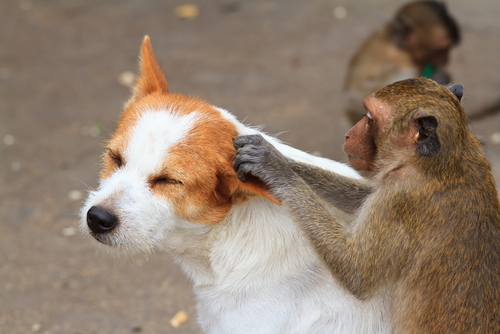Don’t shake your head when employees come to your office complaining that some practice is “unfair.” It could be a natural animal reaction, said experts presenting at the American Psychological Association (APA) annual convention. Their research found that monkeys, and even some dogs, can discern when something is not equitable in their favor.
 |
Research by primatologist Sarah Brosnan, PhD, of Georgia State University, involving chimpanzees, monkeys, gorillas, and other nonhuman primates has shown that other species respond to unfairness! Dr. Brosnan researches complex social behavior and cognition underlying cooperation, reciprocity, and inequity in nonhuman primates from an evolutionary perspective.
She found that chimpanzees and capuchin monkeys will refuse a reward for a task completed with a partner if the partner receives a better reward first, according to one of Brosnan’s experiments, which are aimed at determining how humans developed their sense of fairness. This reaction has definitely been observed in the HR department.
Domestic dogs were also the subject of the discussion on fairness. According to Alexandra Horowitz, PhD, of Barnard College, and author of Inside a Dog: What Dogs See, Smell, and Know, dogs are more concerned with the quantity of treats doled out by a trainer than whether the trainer distributes them fairly.
In an experiment in which dogs had to select a “fair” or “unfair” trainer, older dogs were more responsive to the fair trainers than their younger counterparts, which suggest that a longer relationship (in this case, dog-human) may affect determination of a sense of fairness in another, according to an APA press release.
So if your company doesn’t want to stir up any primal feelings in workers, make sure managers and compensation strive to be fair.

I haven’t come across many employees who will outright refuse an award, even if a coworkers received a better reward first. They may complain, but they’ll usually still take the so-called lesser award.